|
|
|
|
Over the last two weeks, hardly a day has gone by without the words “Fulani”, “killer herdsmen,” or “Fulani herdsmen” dominating headlines in the Nigerian media space. This follows allegations of kidnapping for ransom, rape, murder and arsonist attacks on local communities and farm settlements mostly in the southern part of Nigeria. Fingers have been pointed at cattle herders believed to be of the Fulani ethnic stock. For their part, Fulani groups and cattle herder associations have vehemently refuted the allegations. Clashes between farmers and herders in Nigeria have a long history. Janet Ogundairo and Feyisitan Ijimakinwa explain that while
these problems have an overriding arc of insecurity, new challenges, including disadvantaged access to infrastructural facilities, porous borders and climate change, have contributed to the latest violence.
South Africa’s former president Jacob Zuma continues to hog the limelight in South Africa for all the wrong reasons. This time around, the commission of inquiry probing allegations that he facilitated grand corruption to benefit himself, his family and cronies has heard how he used the country’s spy agency to target his rivals in the governing party, the African National Congress. Steven Friedman reflects on evidence that’s been led at the commission and makes a case for strong civilian oversight over the intelligence community.
The coronavirus pandemic has had devastating effects on Nigeria’s economy. Businesses have suffered great losses, jobs have been lost and tens of millions of people have lost their livelihoods, given the number of daily income earners in the country. The state has also lost revenue following the fall in the price of oil. In this podcast, Ndubuisi Nwokoma, professor of economics at the University of Lagos, sets out the scale of the damage as well as what the government should do next. This includes making sure there’s a sensible balance between health and economic imperatives in managing the crisis and improving relief efforts. It must also ramp
up its post-COVID-19 strategy, and focus on ways to diversify the country’s economy away from oil.
|
Adejuwon Soyinka
Regional Editor West Africa
|

|
|
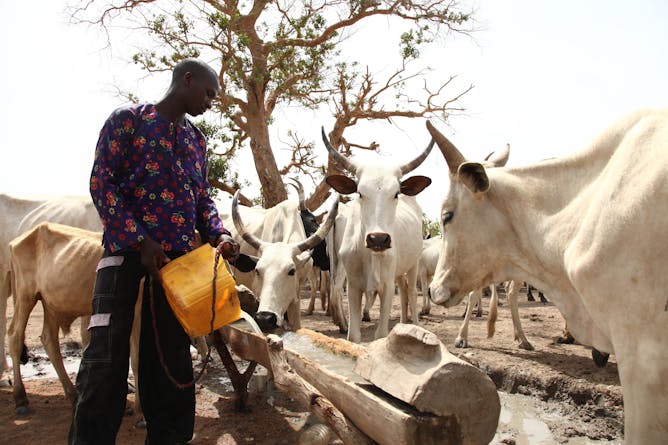
A Fulani herdsman waters his cattle on a dusty plain between Malkohi and Yola town
Emmanuel Arewa/AFP via Getty Images
Janet Ogundairo, University of Ibadan; Feyisitan Ijimakinwa, University of Ibadan
Clashes between farmers and herders in Nigeria have their roots in history and an overriding arc of insecurity, but new challenges are contributing to the problem.
|
|
|
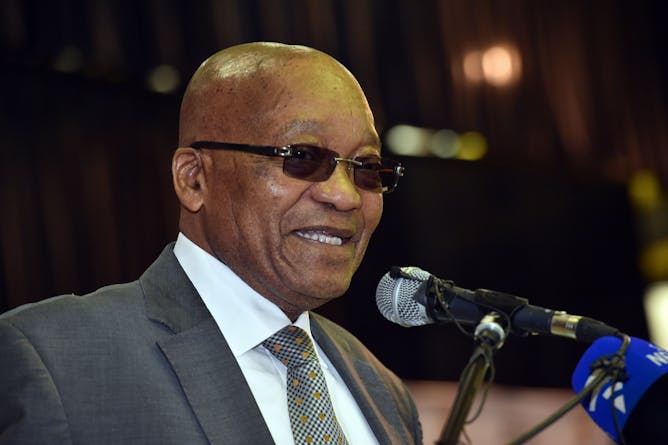
Former South African President Jacob Zuma deployed spies in factional battles within the governing party.
GCIS
Steven Friedman, University of Johannesburg
Revelations show that the State Security Agency did little to safeguard the country and much to protect Zuma's political faction and to funnel public money into private ends.
|
Environment + Energy
|
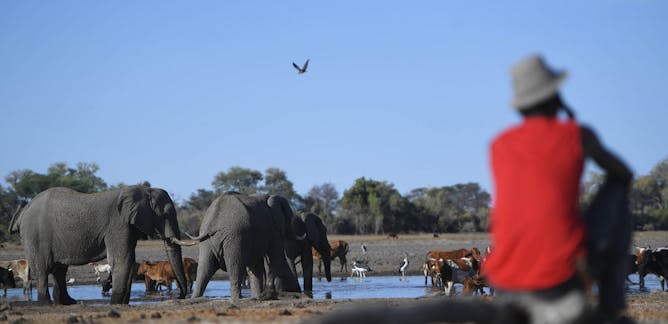
Anja Gassner, World Agroforestry (ICRAF); Philip Dobie, World Agroforestry (ICRAF); Terry Sunderland, University of British Columbia
Evidence shows that farms that share landscapes with wild nature, such as remnant forests and trees, benefit from the ecosystem services provided.
| |
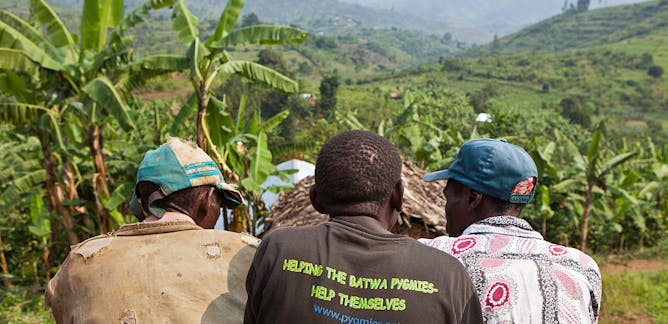
Dr Poshendra Satyal, University of East Anglia; Dr Noelle Kumpel, University of Cambridge; Keith Hyams, University of Warwick; Morten Fibieger Byskov, University of Warwick
Despite being highly affected by a changing climate, Uganda's Batwa community lack voice, agency and influence in climate adaptation planning and actions.
|
|
|
Arts, Culture + Society
|
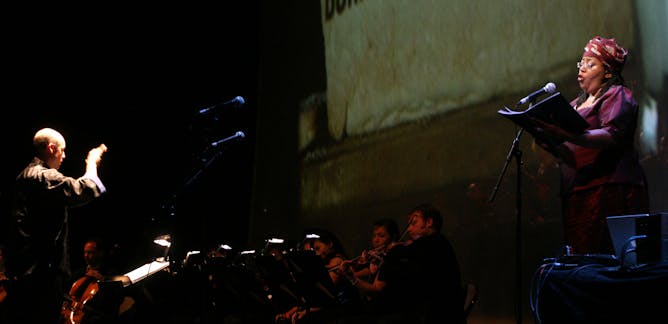
Thembela Vokwana, University of Fort Hare
Both choirs and classical music were childhood influences on a stellar career that would leave behind major new recordings in these areas.
| |
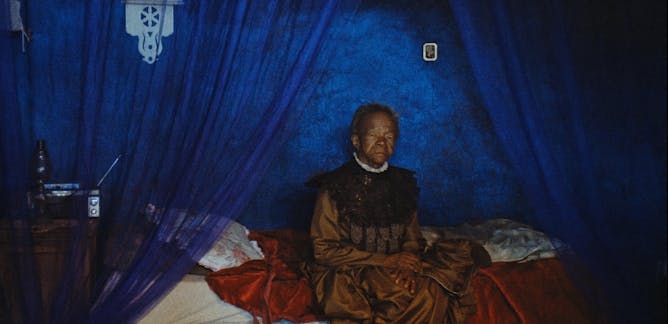
Anna-Marie Jansen van Vuuren, Tshwane University of Technology
Lesotho's first-ever entry at the Oscars is a powerful story based on true-to-life events in which a village is to be forcibly evicted to make way for a new dam.
|
|
|
Podcasts
|

Ozayr Patel, The Conversation
The Novavax vaccine is the first that provides objective scientific evidence that it can protect people against the variant virus circulating in South Africa.
| |
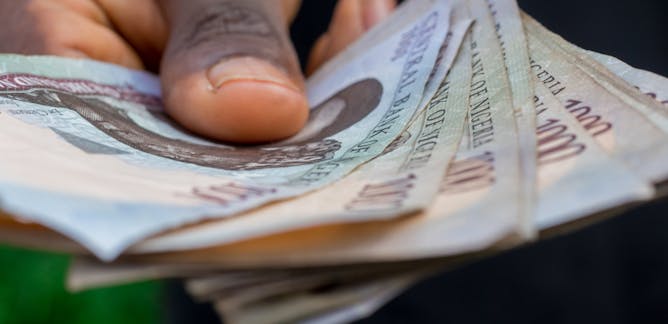
Ogechi Ekeanyanwu, The Conversation; Usifo Omozokpea, The Conversation
The lower global oil price hit Nigeria's economic mainstay. The country has seen job losses, a slowdown in production and health challenges to the workforce.
|
|
|
From our international editions
|
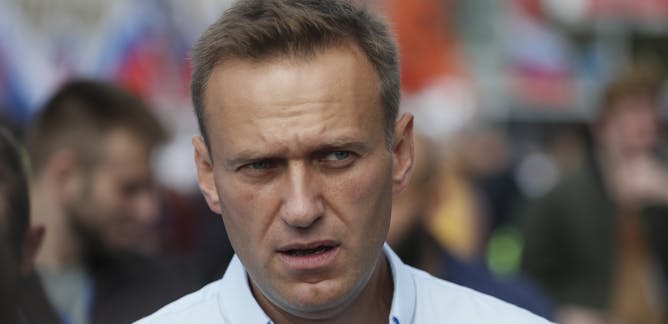
William Partlett, University of Melbourne
Navalny's jailing could galvanise Russians who want a government no longer characterised by post-imperial nostalgia and a paranoid, siege mentality that constantly fears the West.
| |
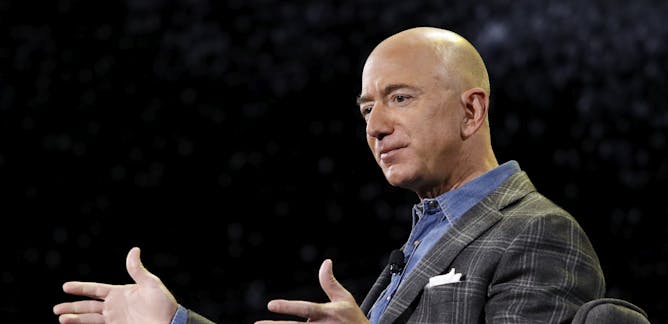
Venkatesh Shankar, Texas A&M University
Jeff Bezos announced he's stepping down as CEO, almost 27 years after he founded the company as an online bookstore.
|
|
|
| |
Featured events
|
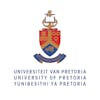
|
Hatfield , Pretoria, Gauteng, South Africa — University of Pretoria
|
|
|
|
| |
| |
| |
Would you like to republish any of these articles?
|
|
It’s free to republish, here are the guidelines.
Contact us on africa-republish@theconversation.com in case you need assistance.
|
| |
| |
| |
| |
|
|
|
|
|
|
|